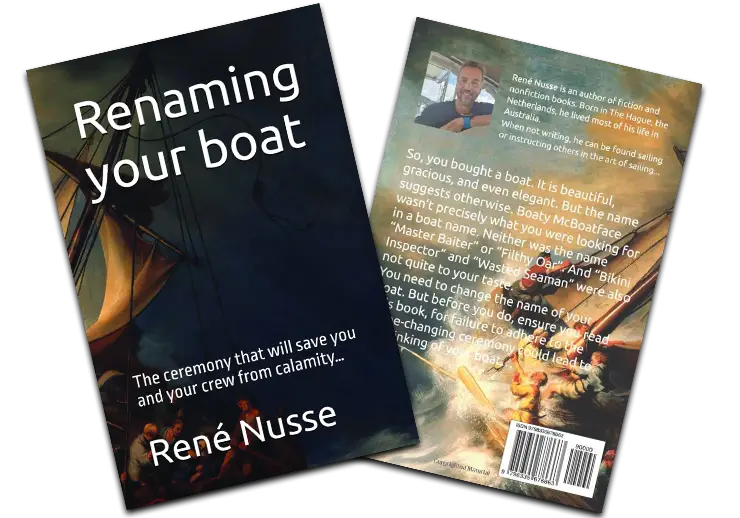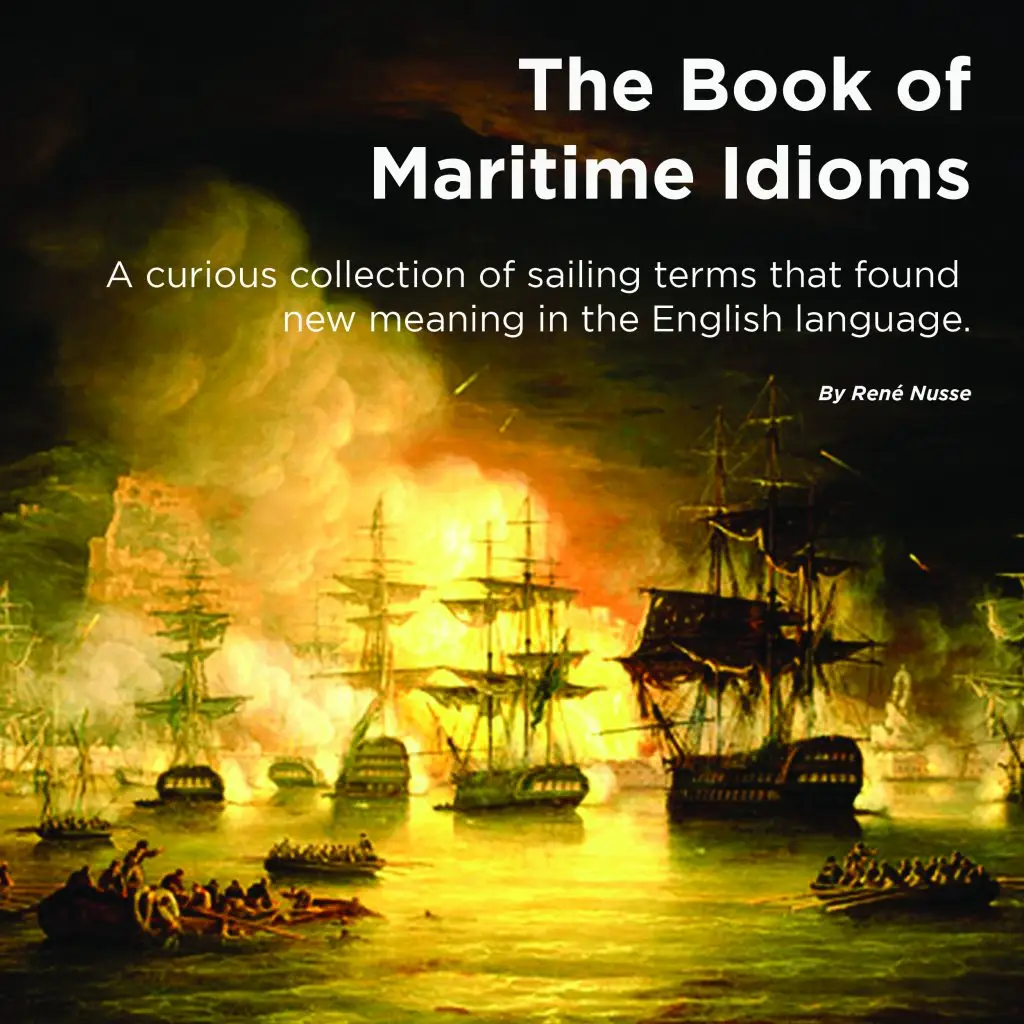Never trust a sailor on dry land...
The phrase “never trust a sailor on dry land” is a proverb-like expression rich in metaphor and connotation. Let’s explore its etymology and meaning in detail. Remember that you can find 250+ idiomatic phrases like this in my book: The Book of Maritime Idioms.

Etymology
The phrase is naturally idiomatic, and while it doesn’t have a single clear historical origin, it likely emerged from seafaring and naval cultures, especially British and American maritime traditions, where sailors played a vital role in trade, war, and exploration.
As a reference, the phrase “never trust a sailor on dry land” was used by Tommy Nettle in the movie Atonement (2007), based on the extraordinary book by Ian McEwan.
Let’s look at the origins of the key components:
1. Sailor
The word sailor comes from Middle English sailour, derived from Anglo-French sailour, and ultimately from the verb sail. A sailor is skilled in navigating ships and accustomed to the sea and its rules—a very different environment from life on land.
2. Dry land
This refers to terra firma—solid ground—as opposed to the sea. The phrase “on dry land” dates back centuries and often implies unfamiliar or unstable footing for someone accustomed to life at sea.
Putting these together, the idiom plays on the idea of contrast: a sailor is at home on the sea, but out of place on land.
Meaning and Interpretation
The phrase is metaphorical and can be interpreted in a few layered ways:
1. Literal Interpretation (Surface Meaning)
Sailors are trained and competent at sea, but not necessarily on land.
On dry land, they’re often in port towns—sometimes drunk, reckless, womanising, unfamiliar with local customs or all of the above.
This may stem from the fact that sailors visiting a foreign port may not return to it and therefore ignore all consequences associated with behaving in frequently visited places.
- This makes them less reliable or “trustworthy” outside their element.
Historically, sailors on shore leave were often associated with:
Excessive drinking
Gambling
Visiting brothels
Womenising and breaking hearts
- Telling exaggerated or fanciful stories (i.e., tall tales)
Thus, the phrase suggests: “Don’t take what a sailor says or does on land too seriously.”

2. Figurative or Deeper Meaning
This is where the phrase gets interesting. It can mean:
A. People are not to be trusted when they’re outside their element.
A sailor is trustworthy at sea, where they belong and understand the rules.
But if they are put in a different context (dry land), their judgment may be poor.
So, “never trust a sailor on dry land” becomes a broader metaphor for not trusting someone when they’re outside of their area of expertise.
B. Appearances can be deceiving.
Someone who seems disciplined or skilled in one environment may not be so in another.
There’s an implicit warning: don’t assume consistency across all domains.
C. Some people perform for an audience.
Sailors might play up a persona while on land, especially in front of strangers.
This relates to performance or fabrication (storytelling, exaggeration, bravado).
Usage in Modern Language or Culture
While not extremely common today, the phrase might still appear in:
Literature or maritime fiction (especially in works about navy life or historical sea adventures)
Metaphorical use in everyday speech to describe someone unreliable outside their natural environment
Figurative language in business, e.g., “Don’t trust a coder in a boardroom,” as a variant
Summary
“Never trust a sailor on dry land” is a metaphorical idiom meaning:
Be cautious of people outside their comfort zone or natural environment—skills and character don’t always transfer across contexts.
Origins: Rooted in maritime culture, drawing on the stereotype of sailors being wild, exaggerated, or unreliable when off the ship.
Let’s chuck in a poem…
“Never Trust a Sailor on Dry Land” – A Literary Reflection
The sea is a cruel and honest teacher.
She tests every man who dares ride her moods—
with salt-stung eyes, blistered hands, and the rhythm of tides etched into the soul.
A sailor at sea is a creature of precision:
he knows the wind like a lover, he ties knots tighter than secrets,
he reads the stars like scriptures.
But bring that sailor ashore—
to a world of stillness, of cobbled streets and tavern songs—
and he is unmoored.
The constellations are hidden by city smoke,
the compass spins in his pocket with no true north to follow.
On land, he becomes myth and mischief.
His stories stretch like sails in the wind—impressive, colorful, but not always true.
He drinks too deeply, laughs too loudly, and wears his charm like a borrowed coat.
To trust him there, on dry land,
is to forget that his truth belongs to the ocean.
There, he is bound by duty, order, the sacred fear of drowning.
But on land? He is free—
and freedom, for some men, is a kind of madness.
So the phrase is not a condemnation, but a warning wrapped in poetry:
Trust the sailor at sea, where the stakes are life and death.
But on land—where he is merely a visitor in a world that moves too slowly—
guard your heart, your coin, and your certainty.

NAVIGATION RULES CLINIC + BASIC SAIL TRIM COURSE
Author
-

Rene is a keelboat instructor and sailing coach in the Mandurah area WA. He is also the author of several books about sailing including "The Book of Maritime Idioms" and "Renaming your boat".
View all posts


